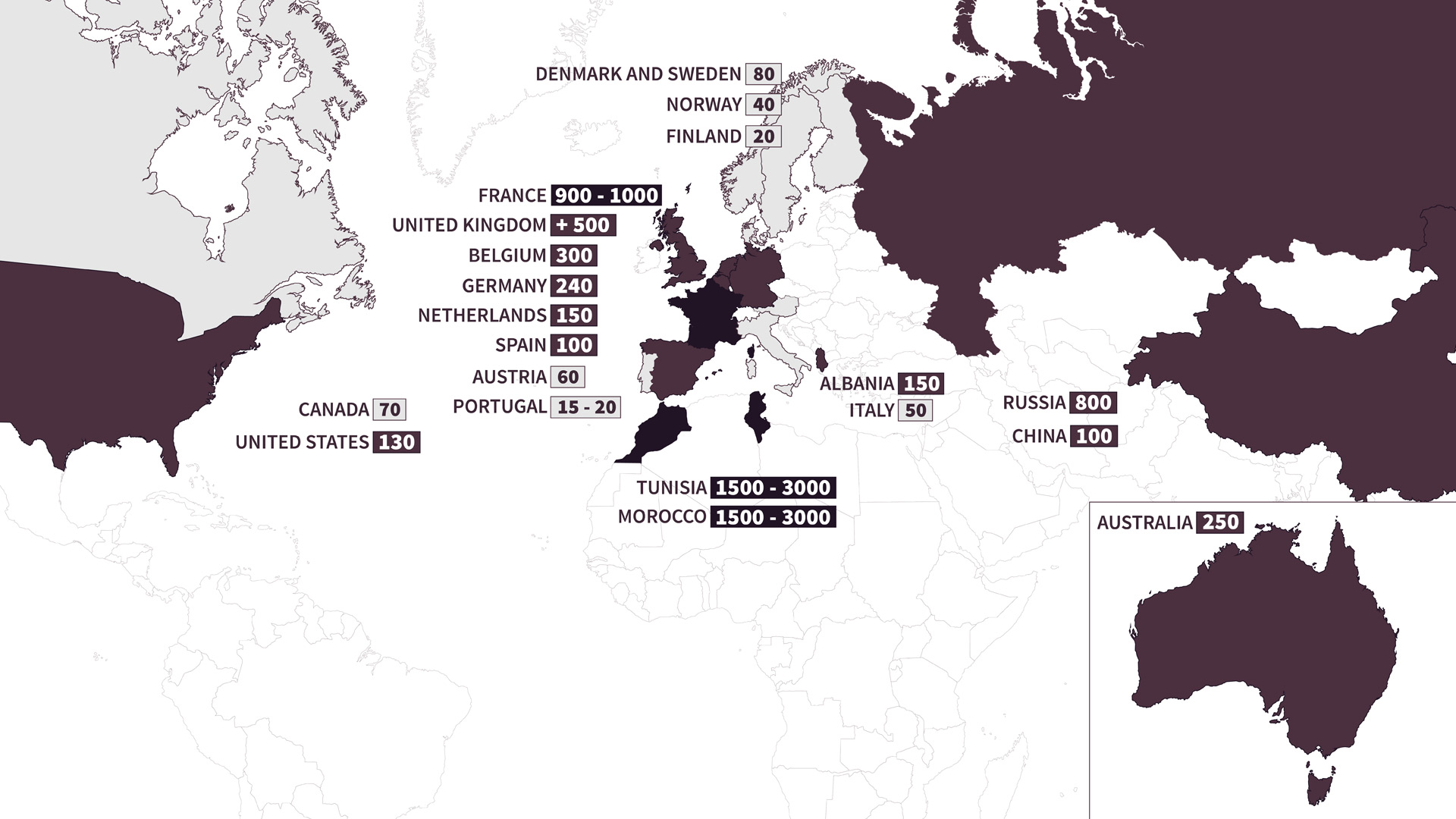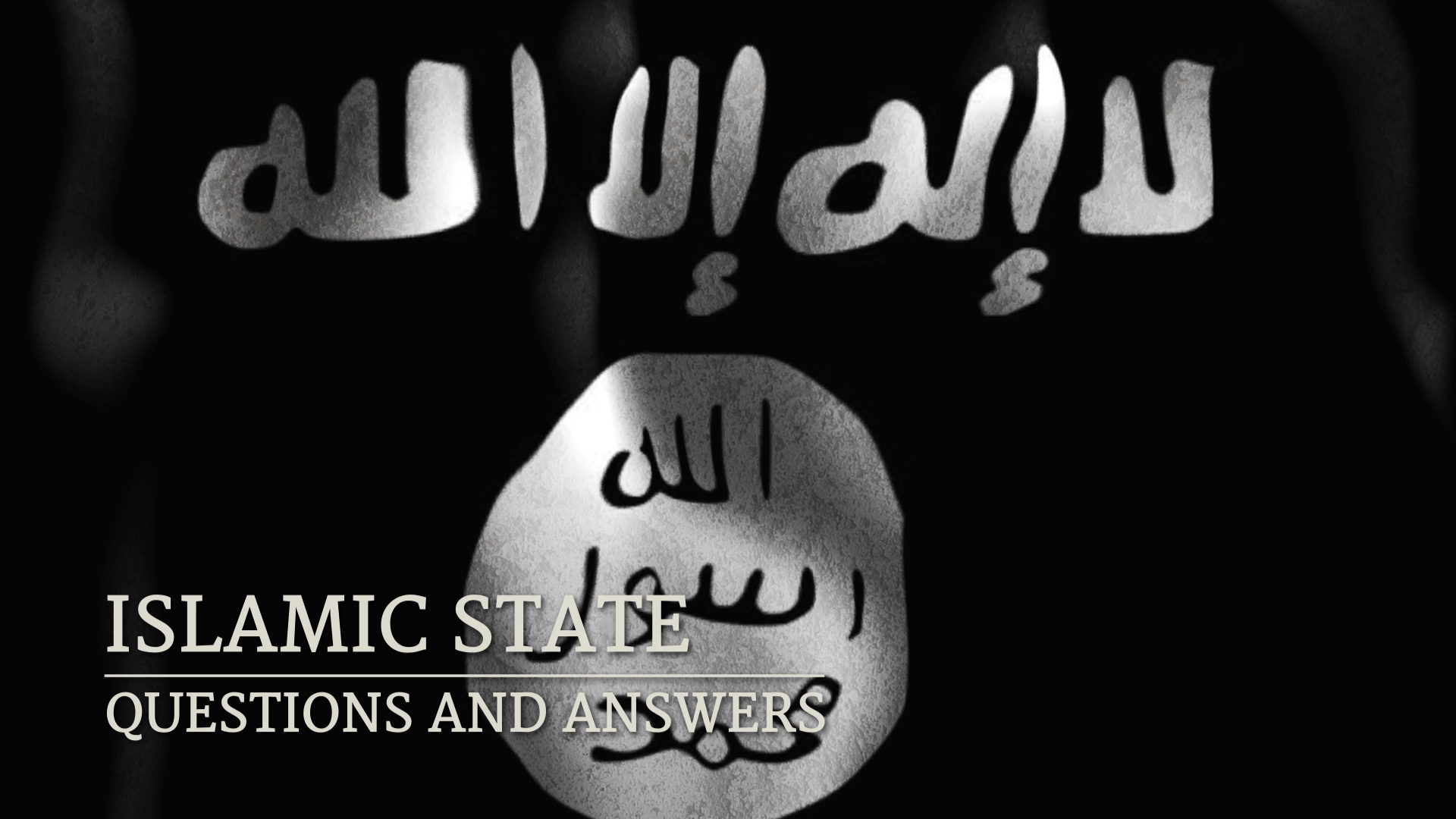What is Islamic State (IS)?
This is an armed jihadist group that gained strength when joining the civil war in Syria. It started out designated ISIS or ISIL, but changed its name to “Islamic State” on 29th June following the nomination of Abu Bakr al-Baghdadi as its caliph. Islamic State seeks to impose religious authority on Muslims around the world and plans to conquer the Levant (Israel, Lebanon, Syria, Iraq and Jordan). The group has been designated a “terrorist organisation” by the main western powers but it currently controls significant tracts of both Syria and Iraq. Whenever taking a particular site, its men hang the black flag from the top of the highest building.
Who belongs to and who supports Islamic State?
Initially, the group was made up of an umbrella of various terrorists factions of Sunni origin. Through to February, they were allies of Al-Qaeda however internal power struggles led to a split with that terrorist organisations. The major supporters of Islamic State are the insurgent groups Jeish al-Taiifa al-Mansoura, Jaysh al-Fatiheen, Jund al-Sahaba, Katbiyan Ansar al-Tawhid wal Sunnah alongside various Iraqi Sunni tribes. Its army is currently estimated as at over thirty thousand men and including some twelve thousand foreigners from some 81 different countries.
Where does the army get its financing?
At the beginning, Arab millionaires. Today, Islamic State manages to self-finance itself through dealing in oil and gas (pumped in zones in the meanwhile conquered), taxes and money from ransoms paid to secure the release of hostages. These ransoms have been paid both by families and by some Western governments semi-officially. The offensive into Iraq has also been fairly profitable given that Islamic State accessed the many millions of dollars deposited in the banks in the towns and villages invaded and seized. Hence, they have been able to acquire ever more sophisticated weaponry.
How many people have lost their lives to Islamic State?
There are hundreds of denouncements of violence and human rights abuses involving Islamic State guerrilla fighters: soldiers and civilians decapitated, women raped and others put to sexual exploitation are among the most common. Those refusing to live according to their laws are tortured, mutilated or condemned to death. Islamic State is particularly violent against the Shiites, Yazidis and Christians and has already slaughtered at least twenty thousand people thus far this year and that is according to more conservative statistics. In Iraq alone, some five thousand soldiers and civilians have died since Islamic State’s June invasion.

What are the main nationalities of the Western jihadists fighting for Islamic State?
The French represent around a half of the European guerrilla fighters (between 900 and 1000), followed by the British (over 500). Belgium (300), Germany (240), the Netherlands (150), the United States (130), Spain (100), Denmark and Sweden (80), Canada (70), Austria (60), Italy (50), Norway (40), Finland (20) and Portugal (between 15 and 20) are the main Western countries of origin. There are also 800 Russians and 150 Albanians. Of the non-European contingent, that is led by Saudi Arabians, Tunisians and Moroccans (between 1,500 and 3,000 from each country). There are about 250 recruits from Australia with far fewer from China (around 100).
What has the United Kingdom done to combat domestic Jihadists?
In the United Kingdom, some 218 persons have been arrested on terrorist related grounds since the beginning of the year. A further 16 were sentenced on their return from Syria. The British police also account for a further 66 persons reported as missing by their families and allegedly for having travelled to Syria to join Islamic State. There are estimates that some 50 persons per week begin anti-radicalisation programs.
What does SIRP – the Secret Services of the Portuguese Republic say about the Portuguese jihadists?
In April, the office of the SIRP Secretary General confirmed that there were “references to some national citizens having joined the group of combatants” supporting the jihadist cause in Syria. Some “hold the statute of temporary residence in other European countries whilst maintaining social and families connections with the national territory”. In September, a source close to these ‘secrets’ revealed that two such radicals were again back in Portugal. They were neither arrested nor prevented from travelling to Syria or to Iraq. Contrary to what happens in other countries, Portuguese law does not provide for the seizure of passports or any prohibition on the jihadists returning to Islamic State.
How many terrorism alerts did the Portuguese authorities experience in 2013?
Throughout last year, Polícia Judiciária (CID style force) responded to a total of 62 terrorism warnings: Europol made 52 requests for the assistance of the Portuguese authorities as regards the activities of suspects and Interpol ten.
